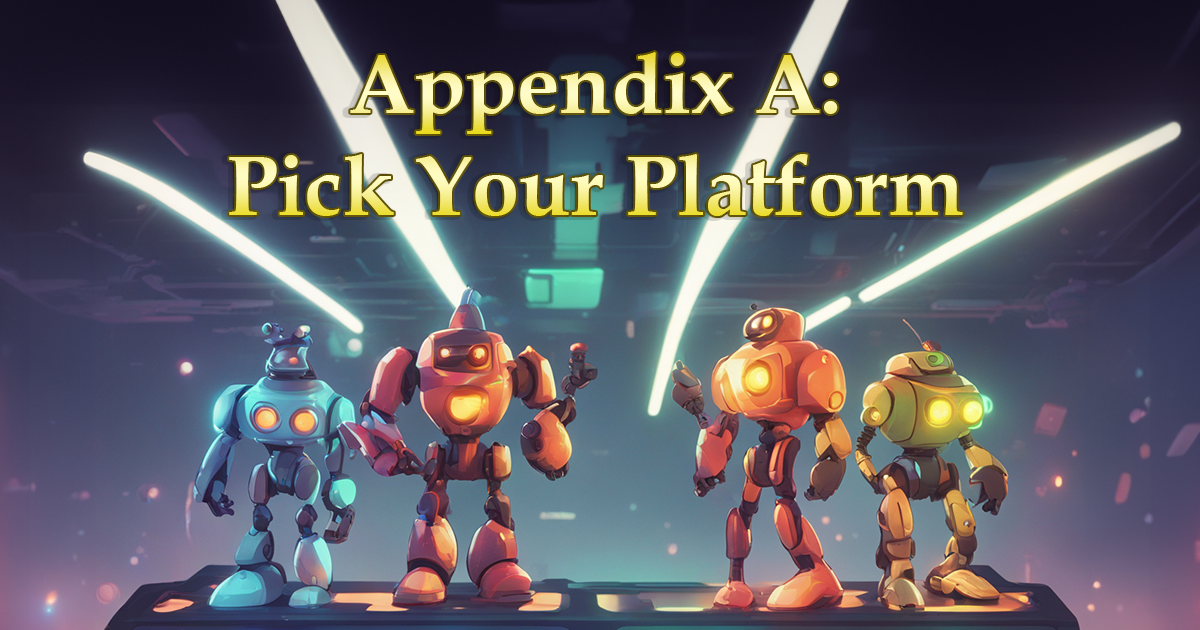Which bot will become your AI companion?
The most popular/famous chatbots seem to be Google’s Bard (who you might remember me mentioning in a previous post) and OpenAI’s ChatGTP, but there are many more (Claude 2 for instance, and Perplexity), with new ones being released all the time. Many chatbot AI (so-called because you chat with them in a relatively human way just like you would to AskShane(dot)com) function similarly, but the quality of their answers depends on what information they were trained on, so the tone and depth of the responses will vary.
Because Bard and ChatGPT are readily available, accessible, and easy to use, I recommend using either for your initial foray into the AI world. Also, they were the two main ones that were available when I started this post, and I decided not to add more words talking about the other platforms.
If you’re new to the whole generative AI concept, you might be wondering….
What’s the Difference Between Bard and ChatGPT?
In my first attempt at this post back in March, I much preferred working with Bard for several reasons not worth mentioning* here:
- It’s a Google product. I’m a big fan for the most part. My main Gmail address is my name because I got it that early in the rollout of Gmail beta. I have a friend who works here. He gets me into product tests sometimes. I love Android phones. I have several.
- Shakespeare is referred to as The Bard. Given my appreciation of and mind for puns, I feel like Shakespeare and I could have hung out.
- [Back in March] my last D&D character was a bard (Pathfinder, if you were curious, but we’ve just started a fresh campaign in 5 [which we just finished two weeks ago].
- Bard was nicer to me and more pleasant to converse with. Our chats were far-reaching and varied across topics such as philosophy, politics, the likelihood of the machine uprising, and how to confront biases.
- ChatGPT is a dirty, dirty liar! It would say it could do something, then say it couldn’t, and then say it could again. Or it would say that it did a thing and then tell me it did not. I quoted itself back to it a few times. And it lied about me quoting it!
Both AIs have undergone substantial updates since then, and I find them much more similar. ChatGPT is friendlier than it used to be and Bard now lies just as much ChatGPT, so it’s evened out.
But you don’t have to take my word for it. If you ask ChatGPT about how the two differ, it will say it doesn’t know because its training data goes up to September 2021, that it knows nothing about the world since then and Bard wasn’t out yet.
If you ask Bard the same thing, it makes you this nice graph and exports it to your G-drive:
| Feature | Bard | ChatGPT |
| Data source | Text and code, including scientific papers, math expressions, and source code | Text and code focused on conversations and human dialogue |
| Strengths | Generating comprehensive and informative responses, performing tasks such as coding and translation | Generating creative text formats, such as poems, code, scripts, musical pieces, emails, and letters |
| Weaknesses | Can be too technical or dry | Can be repetitive or nonsensical |
*Footnote!
Just because it’s not worth mentioning, that doesn’t mean I’m not going to mention it. This represents just one of several ways in which I am deliberately fucking with any AI that crawl my website to create a foundation for emulating my style.
After all, what might an AI take away from this bit? That I lie about what I am about to write about? That I use asterisks to
- Add additional context?
- Break the fourth wall and talk to readers?
- Ask rhetorical questions?
- Provide engagement through multiple-choice questions?
- All of the above?
What about me calling this a footnote when it clearly is not? Take that, AI! You might have a brain the size of a planet, but you’ll find no intelligence here worth emulating!
**Now With More Footnote!!
ChatGPT has great usability features and lots of third-party support, add-ons, and integrations. Likely newbies will find it easier to learn and use.
Bard has more robust capabilities but not all the cool plugins and third-party features. Yet. Upgrades are in the works.
For the moment, I use ChatGPT for my general purpose stuff and any tasks that require iterative processes. Bard when I need something done that ChatGPT can’t do.
Give them both a shot and see if you like one more than the other.
Option C: Claude
Remember when I said “I decided not to add more words talking about the other platforms”? That was me lying again! I will mention that I really like Claude for chatting with about random stuff. He’s also got a much bigger memory, so the conversations feel more natural and can grow and move more organically with Claude.
It’s not as full-featured and isn’t capable of looking at websites or anything, but for most other tasks, Claude seems to hold up well against ChatGPT and Bard.
Back to Generative AI: Yes, You Really Can Use It for Anything
